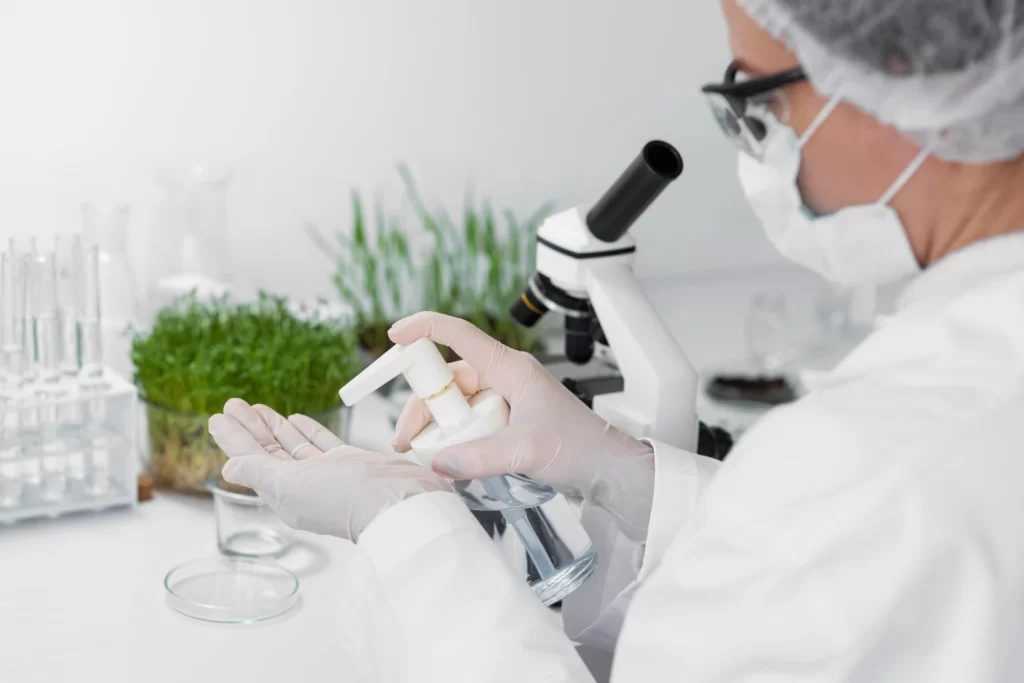Creating a healthy and safe living environment is vital for overall well-being. In today’s world, homes can be affected by various environmental factors that compromise the quality of indoor air, introduce harmful substances, and contribute to physical or emotional health issues. This is where the expertise of a Building Biologist Ireland comes into play. Building biologists are trained professionals who specialize in identifying and addressing environmental health hazards within homes and workplaces, ensuring that these spaces promote good health and are free from harmful influences.
In this blog, we will explore the role of building biologists in Ireland, their core focus areas, and how their services can enhance the health and safety of your home.
What is Building Biology?
Building biology is the study of how buildings affect human health and the natural environment. It goes beyond typical building inspections by examining the relationship between human health and the built environment, considering factors such as indoor air quality, electromagnetic fields (EMFs), mold, allergens, and chemicals. The field was initially developed in Germany in the 1960s and has since gained traction worldwide as people become more aware of environmental influences on health.
In Ireland, building biology addresses specific concerns related to damp climates, modern construction materials, and increasing levels of EMF exposure from wireless technologies. A Building Biologist in Ireland helps homeowners and businesses create healthier spaces by identifying potential hazards and offering practical, science-based solutions.

The Role of a Building Biologist in Ireland
Building biologists in Ireland are responsible for evaluating homes, offices, and other structures for health risks. They apply a holistic approach to inspecting buildings and focus on factors that impact air quality, moisture levels, electromagnetic radiation, and the presence of toxic chemicals. Here’s an overview of the primary areas they assess:
1. Indoor Air Quality
One of the most important aspects of building biology is ensuring good indoor air quality. Poor air quality is linked to various health problems, including respiratory issues, allergies, asthma, and even long-term conditions like cardiovascular disease. A Building Biologist in Ireland can assess the air quality in your home, identifying pollutants such as volatile organic compounds (VOCs), mold spores, dust, and other allergens.
Common sources of indoor air pollution include:
- Building materials that off-gas harmful chemicals
- Cleaning products with toxic ingredients
- Poor ventilation systems
- Dampness and mold growth
Once these issues are identified, a building biologist will recommend ways to improve ventilation, eliminate pollutants, and create a healthier indoor environment.
2. Moisture and Mold Management
Ireland’s humid climate makes homes susceptible to mold growth, especially in poorly ventilated or older buildings. Mold can lead to serious health concerns such as allergies, asthma, and other respiratory issues. A Building Biologist in Ireland is skilled in detecting hidden mold and moisture problems that can go unnoticed for years.
They use moisture meters, thermal imaging, and other diagnostic tools to locate areas prone to dampness. After identifying moisture sources, they provide recommendations on mold removal, moisture management, and the installation of dehumidification systems, if necessary.
Preventing and addressing mold is crucial to maintaining a healthy living environment.
3. Electromagnetic Radiation (EMF) Assessment
As technology advances, exposure to electromagnetic fields (EMFs) has become a growing concern. EMFs are emitted by electrical appliances, wireless devices, cell towers, and power lines. Prolonged exposure to high levels of EMFs can have potential health risks, including sleep disturbances, headaches, and increased stress levels.
A Building Biologist in Ireland conducts EMF assessments to determine the exposure levels in your home. Using specialized tools, they measure radiation levels emitted by Wi-Fi routers, smartphones, smart meters, and other devices. Afterward, they offer strategies to reduce EMF exposure, such as positioning devices away from living spaces, using wired internet connections, and installing shielding materials to block radiation.
4. Chemical Pollutants and Toxins
Building materials and household products can introduce toxic chemicals into the home. These toxins include formaldehyde, lead, asbestos, and pesticides, which can cause serious health issues, particularly in children, the elderly, and individuals with compromised immune systems.
A Building Biologist in Ireland will identify sources of chemical exposure, such as paints, synthetic building materials, and cleaning products. They provide guidance on choosing non-toxic materials and green building products, ensuring that your home remains free from harmful substances.
5. Sustainable and Eco-Friendly Living
Sustainability is a core principle of building biology. Building biologists advocate for the use of natural, non-toxic materials that are not only healthier for occupants but also for the environment. This includes selecting energy-efficient building systems, reducing waste, and improving overall ecological impact.
A Building Biologist in Ireland can help you incorporate eco-friendly practices in home design, renovation, or daily living. From selecting energy-efficient insulation to using organic paints, they guide you in creating a sustainable, environmentally conscious home that aligns with your values.

Benefits of Hiring a Building Biologist in Ireland
Hiring a Building Biologist in Ireland can provide significant benefits for homeowners who are concerned about their living environment and its effects on their health. Some of the key advantages include:
1. Improved Health and Well-Being
Building biologists specialize in identifying factors that negatively impact health, such as air pollutants, mold, EMF radiation, and toxic chemicals. By addressing these issues, you can significantly reduce the risk of developing allergies, respiratory problems, and other health concerns, leading to a better quality of life.
2. Enhanced Sleep and Stress Reduction
High levels of EMF exposure, poor air quality, and mold can all disrupt sleep patterns and increase stress. A building biologist’s recommendations, such as reducing EMF exposure and improving indoor air quality, can help create a more peaceful and restorative environment.
3. Energy Efficiency and Sustainability
Building biologists promote eco-friendly building practices and energy-efficient solutions. By following their advice, you can reduce your home’s environmental impact and lower energy costs, contributing to a healthier planet and a more sustainable lifestyle.
4. Long-Term Cost Savings
Addressing issues like mold, poor insulation, and toxic materials early on can save you money in the long run. A building biologist will help you avoid costly repairs and health treatments by preventing problems before they escalate.
How to Choose the Right Building Biologist in Ireland?
When looking for a Building Biologist in Ireland, it’s essential to consider the following factors:
1. Certification and Training
Ensure that the building biologist you hire has completed accredited training in building biology and is certified by a recognized organization. This ensures that they have the necessary knowledge and expertise to conduct thorough assessments and provide accurate recommendations.
2. Experience and Specialization
Look for a building biologist who has experience dealing with issues specific to Ireland, such as mold growth in damp climates and EMF exposure from wireless technologies. A specialist who understands the local environment will be better equipped to address your unique concerns.
3. Testimonials and References
Ask for references or read online testimonials to gauge the experiences of other clients. Positive reviews can give you confidence that the building biologist you choose will deliver effective solutions.
4. Customized Solutions
Every home is different, so it’s important to work with a building biologist who offers tailored solutions rather than one-size-fits-all approaches. A good building biologist will take the time to understand your needs and create a customized plan to improve your living environment.
Conclusion
Your home should be a sanctuary that promotes health and well-being. A Building Biologist in Ireland plays a vital role in identifying and mitigating environmental hazards that can affect your physical and mental health. From improving indoor air quality and managing mold to reducing EMF exposure and using non-toxic materials, building biologists provide expert solutions that help create healthier homes. Whether you’re building, renovating, or simply wanting to optimize your living space, consulting a building biologist can offer you peace of mind and a better quality of life.
By hiring a professional, you can ensure that your home is a safe, healthy, and sustainable environment for you and your family.
Frequently Asked Questions:-
1. What does a Building Biologist do?
- A Building Biologist assesses environmental factors within homes and workplaces that can impact human health. They focus on indoor air quality, mold and moisture issues, electromagnetic field (EMF) exposure, chemical pollutants, and overall sustainability. Their goal is to create a healthier and safer living environment by identifying hazards and providing practical solutions.
2. How can a Building Biologist improve the health of my home?
- A Building Biologist can enhance the health of your home by detecting pollutants like mold, toxic chemicals, and EMFs that may contribute to health problems such as respiratory issues, allergies, and stress. They recommend strategies such as improving ventilation, using non-toxic materials, and reducing EMF exposure to create a safer and more comfortable living space.
3. Why is mold a significant concern in Irish homes?
- Ireland’s humid climate makes homes particularly vulnerable to mold growth. Mold thrives in damp, poorly ventilated spaces and can lead to various health issues, including respiratory problems, allergies, and asthma. Building biologists are skilled in detecting hidden mold and moisture problems, offering solutions to prevent or eliminate mold in your home.
4. What is EMF, and why should I be concerned about it?
- Electrical devices, Wi-Fi routers, cell towers, and power lines emit electromagnetic fields (EMFs). While low levels of EMF are generally considered safe, prolonged exposure to high levels may cause sleep disturbances, headaches, and increased stress. A Building Biologist can measure EMF levels in your home and provide recommendations to reduce exposure.
5. How can I find a certified Building Biologist in Ireland?
- To find a certified Building Biologist, ensure they have accredited training from a recognized institution. Look for professionals who specialize in issues specific to Ireland, such as mold, moisture control, and EMF exposure. Checking reviews and references can also help you choose the right expert for your needs.


